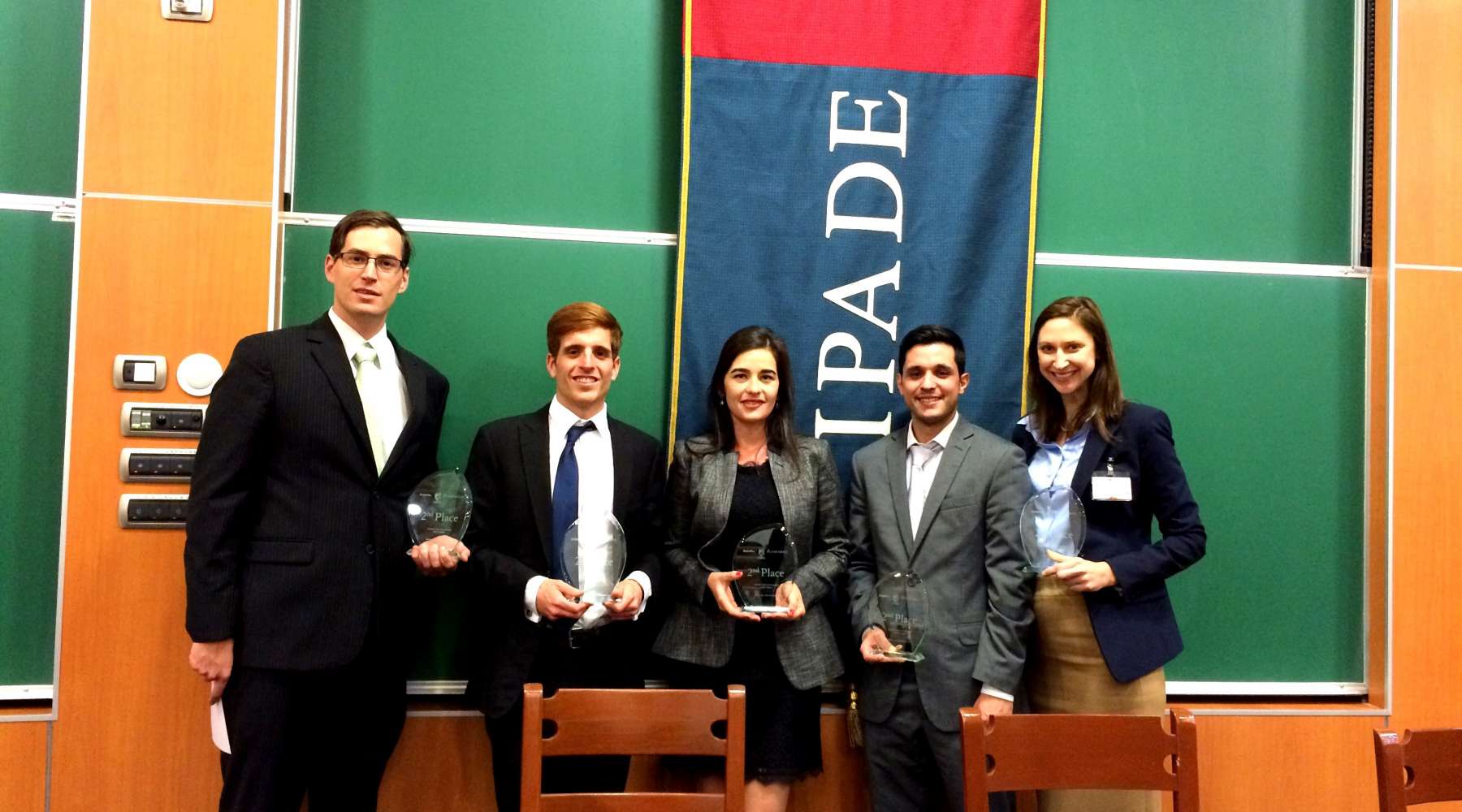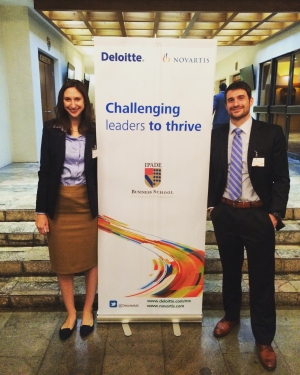

Katelyn is from Wasilla, Alaska. She graduated from Stanford in 2009 with a BA in international relations and minors in African and Middle Eastern languages and Jewish studies. Before Tuck, she spent nearly five years in international development working for Chemonics International, an implementing partner of the U.S. Agency for International Development. Outside of the office and classroom, she enjoys flying planes, hiking up mountains, playing basketball, and swimming.
Every year, two students from a handful of top MBA programs around the globe converge in Mexico City to compete in the final round of IPADE’s annual business school case competition. IPADE, a leading business school in Latin America and one of Tuck’s MBA partner exchange schools, graciously opens its doors for the weekend to host the international and regional visitors (including students from India, Argentina, Bolivia, Spain, Canada, to name a few countries). In February, Steve Janco T’16 and I flew down from New Hampshire to represent Tuck.
Upon arrival, after a fantastic welcome breakfast with traditional Mexican food, we were greeted by the IPADE program director and led on a tour of the facilities. IPADE’s campus – a converted seventeenth century hacienda – is incredibly lovely. During team breaks in the following days, we would wander outside into the quaint cobblestone courtyard filled with flowers and greenery.
After the tour, we got down to business. The students were divided into teams of five comprised of three to four IPADE students from multiple campuses, and one to two international students. The IPADE students had already competed in teams against each other to reach the final round, so they all came to the table rearing to the crack the case!
While Deloitte and Novartis are both sponsors of the competition, this year, Novartis provided the final round case. It focused on innovative ways for Novartis to maintain double digit growth in the Mexican market for its flagship drug Lucentis. Lucentis is an important medication used in the treatment of wet age-related macular degeneration among other ocular complications. The challenges presented included an environment of increasing competition, reduced budgets, and patent expiration. Within 24 hours of receiving the case, each team had to analyze large quantities of quantitative and qualitative data, and prepare and present credible, compelling recommendations to senior level representatives of the two firms.
In my group, I was the only international student. Two participants came from IPADE’s Mexico City campus and two from the Monterrey campus. Four of five were in our first year of business school. I leaned heavily on my peers to quickly learn Mexico’s complicated health care system. It was a fascinating and constructive learning experience, because we all approached problem solving from very different perspectives. Yet strict time constraints forced us to negotiate and agree upon processes to reach the end goal. Within hours, we moved from being complete strangers to working collaboratively, efficiently, and creatively together.
Overall, it was a fantastic experience! My team came up with recommendations and a presentation that led us to second place trophy. We celebrated our success with lunch off campus where my new friends treated me to a delicious spread and I learned that flor de calabaza is my new favorite type of quesadilla.
The world class general management education coupled with myriad opportunities to study, travel, and work globally initially drew me from my previous job in international development to Tuck. In my seven months on campus to date, I have not been disappointed. Beyond this fantastic trip to Mexico, I recently spent two weeks in Sao Paulo, Brazil working for a non-profit client for my First Year Project (FYP). The Tuck FYP is a requirement of our first year core curriculum. Students are asked to apply theory and lessons learned in the classroom to real business situations by providing support to local and global businesses and nongovernmental organizations. I cannot wait for more opportunities to engage with new people, cultures, ideas, and organizations overseas while a student at Tuck.